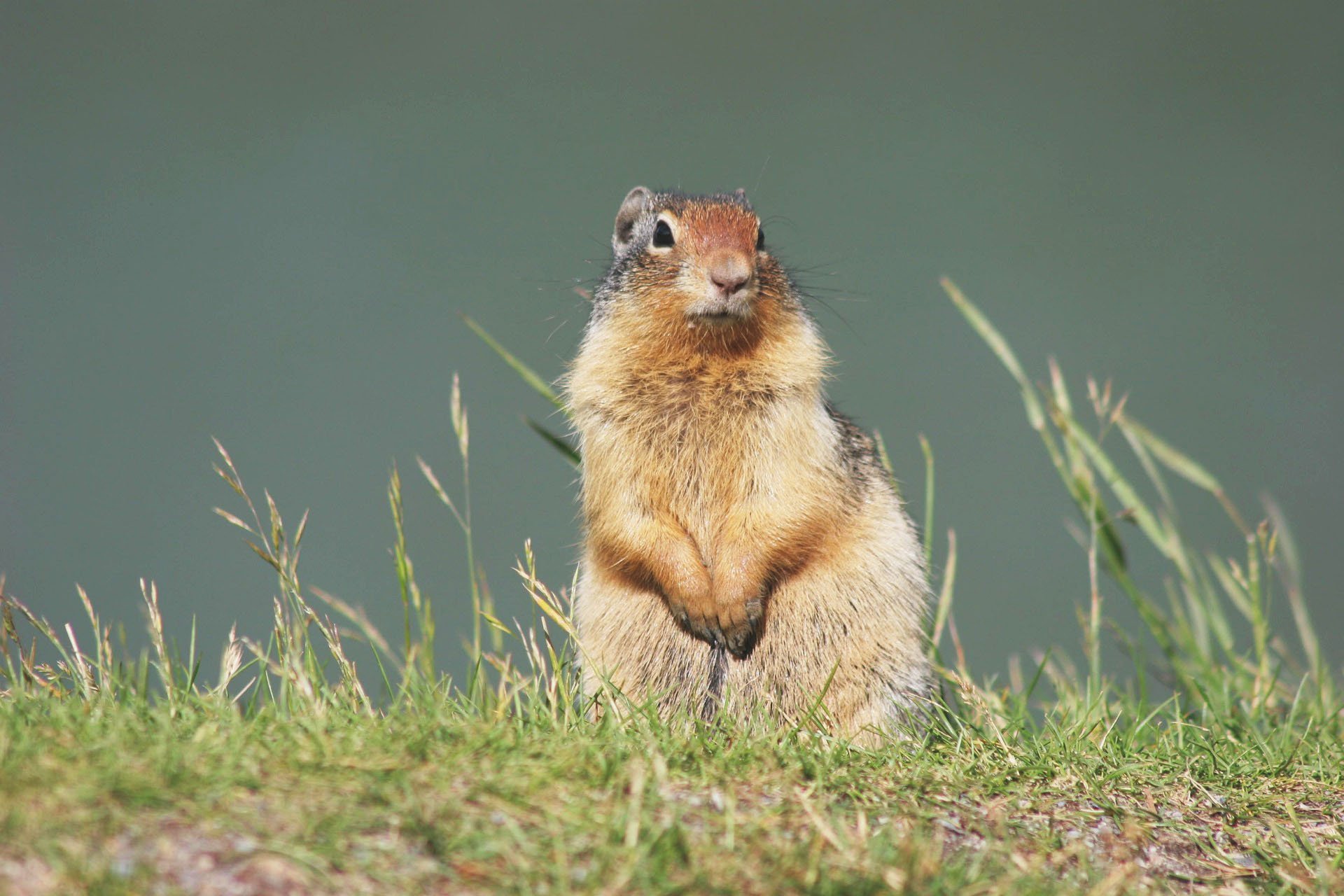Health Canada is conducting an external review of its decision to phase out the use of products containing strychnine to kill Richardson’s ground squirrels over the course of three years rather than banning them immediately. The move comes after Animal Justice and a number of other groups filed a notice of objection to the three-year phase out, arguing that the products should be banned immediately.
Strychnine is a deadly neurotoxin that is used to kill a number of wildlife species in Canada deemed “pests”. One such species is Richardson’s ground squirrels, or gophers, who burrow underground, raising concerns by farmers about damage to crops and injuries to cows who step in holes. Known as one of the most painful ways to die, strychnine poisoning causes excruciating muscular convulsions that can last for hours or days, leading the poisoned animal to die a slow and painful death from eventual exhaustion or suffocation.
Not only is using strychnine incredibly cruel, but it’s also an ecological disaster. When ground squirrels are poisoned with strychnine, their bodies can be scavenged by other animals, causing secondary poisoning to a multitude of non-target animals, including hawks, foxes, and coyotes. Bait intended to kill ground squirrels is also commonly consumed by songbirds, mice, deer, and other animals. These animals suffer excruciating deaths and their bodies are the source of further secondary poisoning.
It is because of these significant and unacceptable risks to wildlife, including endangered species, that Health Canada’s Pest Management Regulatory Agency (PMRA) decided in March 2020 to cancel the registration of products containing strychnine used to kill Richardson’s ground squirrels.
But the phase out period for this product was set for three long years. Animal Justice lawyers believe this delay is not scientifically justified, and that the ban should be in place immediately. During the three-year period, thousands more songbirds and other animals will suffer and die unnecessarily. That’s why we teamed up with Wolf Awareness, Humane Society International/Canada, International Fund for Animal Welfare Canada, Coyote Watch Canada, and Cochrane Ecological Institute and filed a notice of objection to this decision.
We’re pleased to see that PMRA will now convene an external scientific panel to review its three-year phase out timeline, which is currently set to end by March 2023. In its decision announcing the review, the Agency agreed that our notice of objection raised “scientifically-founded doubt” about the cancellation timeline given the risk to birds that are species at risk. We hope this review is completed quickly, and that the cancellation of strychnine products used to kill ground squirrels takes effect before the snow melts and these baits can be set for the 2022 season.
Along with calling for an immediate ban on using the use of strychnine to kill Richardson’s ground squirrels, Animal Justice and Wolf Awareness, with the support of dozens of animal protection and environmental organizations, are continuing to push for a ban on the use of strychnine and other poisons to kill wolves, coyotes, bears, and skunks. The use of strychnine to kill these animals poses similar environmental risks as when it is used to kill gophers.
Unfortunately, the PMRA rejected our December 2020 request to conduct a special review of products containing strychnine, Compound 1080, and sodium cyanide to kill wolves, coyotes, bears, and skunks. The Agency is conducting its own re-evaluation of these products, but has announced that it will not consider the “humaneness” as part of its review. Nonetheless, there are compelling and scientifically founded environmental reasons to ban the use of these products and we will continue working to ensure that the PMRA cancels their registration.
Fortunately, one of the three poisons – sodium cyanide – is no longer registered for use in Canada as of January 1, 2022, having been discontinued by the products’ manufacturer.
Join the Animal Justice mailing list




